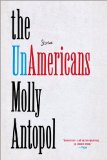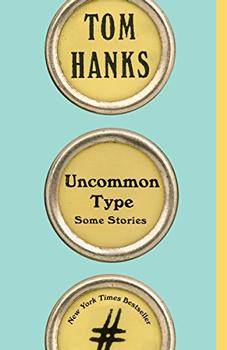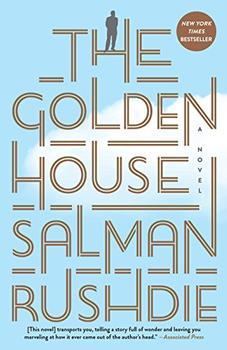Summary | Excerpt | Reading Guide | Reviews | Beyond the book | Read-Alikes | Genres & Themes | Author Bio

Stories
by Molly AntopolThe romantic idea of America as the great equalizing melting pot is all well and good until you realize that homogeneity comes with a hefty price tag. The characters in Molly Antopol's brilliant debut collection of stories are "Unamerican" in many ways — some are secretly members of the Communist Party, while others are grappling with the stresses of immigration, of trying to find meaning in a society that mostly only values the resolute forward march.
What's immediately apparent from the stories in The UnAmericans, spanning the late twentieth century to more contemporary times, is the reach of America's footprint. The country exerts an oversized influence — from the far reaches of Ukraine to neighborhoods in the Middle East. In "Minor Heroics," set in Israel, the brother of a wounded soldier remembers how disgruntled his brother felt by the American presence in his country: "There was nothing worse than guarding land he just wanted to give back, Asaaf was always saying, nothing worse than having one of those Americans stop by his station to tell him, in English, that he was doing holy work."
The characters in this collection are united in the sense of alienation that pervades their every day lives. This feeling — of being on the margins of society, and on the outside looking in — can be brought about by immigration. For example, in "The Quietest Man," Tomas Novak who, together with his wife, was a Communist activist in Czechoslovakia, rues how his once-confident spouse is now cowed down by life in the United States. "I could see how hard the move to Vermont was on her. I could see it in the way she closed into herself when I dragged her to cocktail hour at the provost's house, the way even meeting me for a quick lunch before class made her anxious. The woman who had once stood outside Party headquarters, chanting 'StB Equals Gestapo,' was suddenly afraid to order at the campus sandwich shop because she didn't understand the menu." In yet other examples, alienation sets in as the characters try to remake their lives in the wake of changing economies the world over. In "A Difficult Phase," a young journalist, who was part of an international team of reporters covering trouble in Kiev, has returned home to Israel after a wave of downsizing. What's worse, this relocation forces her to question her motivations to take a shot at the very career she once sought: "Maybe her need to travel, to hear other people's stories, to make a name for herself — maybe it had never been ambition and curiosity that drove her but the plain and simple fear that she wouldn't know how to face real life."
Coming from a family that lived under the shadow of McCarthyism (see Beyond the Book) Antopol's stories are also deeply political. Yet her writing is never didactic — in fact, the complex ways with which her characters face the fallout of an entire belief system are made even more powerful precisely because of their subtlety. These people must often make sense of the world around them while the very ideals they once so ardently valued come crashing down. "For so many of my characters, their entire sense of self is shaped by their political work, and I wanted to explore how having lived under surveillance in Eastern Europe influences their lives once they immigrate to America, where they quickly realize that not only are they no longer being watched — they're no longer being noticed," Antopol said in an interview. It is precisely this problem that Tomas's wife faces in that sandwich shop in Vermont. As does Alexi Liebman, a Hollywood actor in "The Unknown Soldier." Alexi is an unfortunate fallout of McCarthyism and serves time in jail for ties to Communism. What Americans never realized, this story wants to say, was that for many immigrants from Eastern Europe and Russia, communism was simply a way of life, and once here, a safety net that provided succour in the absence of organized religion. Communism might have been a misguided experiment, but it provided many with a sense of purpose, the Party giving a sense of community to many. To paraphrase a character in the story, "Duck and Cover," you can't question the Party. The moment you do — you fall apart.
The UnAmericans powerfully shows what happens to everyday people when the moral compass they use to navigate their daily lives no longer points true north. Life can be a challenge without a good radar. Antopol asks: What is the value of your life when its entire essence can be boiled down to the equivalent of a flavor of the day? For example, Tomas Novak finds he is valued in American academia up until the Serbian conflict dominates the news and his faculty appointment is upended by a new, younger Serbian.
Molly Antopol gives us a complex multi-faceted prism through which one can view, not just the United States, but also the world citizens who live in its large shadow. Forget the Red Scare, these stories seem to imply, has anybody paid much attention to America's great footprint? The UnAmericans is a searing reminder that the pressures to conform did not vanish with the McCarthy era. The "you're-either-with-us-or-against-us" attitudes haven't quite disappeared yet. As time goes on, they only morph into insidious new shapes making new demands, trying to obliterate the past. As these stories show, however, the past can not be easily forgotten. It doesn't go down quietly and definitely not without a struggle.
![]() This review was originally published in The BookBrowse Review in February 2014, and has been updated for the
October 2014 edition.
Click here to go to this issue.
This review was originally published in The BookBrowse Review in February 2014, and has been updated for the
October 2014 edition.
Click here to go to this issue.

If you liked The UnAmericans, try these:

by Tom Hanks
Published 2018
A collection of seventeen wonderful short stories showing that two-time Oscar winner Tom Hanks is as talented a writer as he is an actor.

by Salman Rushdie
Published 2018
A modern American epic set against the panorama of contemporary politics and culture—a hurtling, page-turning mystery that is equal parts The Great Gatsby and The Bonfire of the Vanities
Your guide toexceptional books
BookBrowse seeks out and recommends the best in contemporary fiction and nonfiction—books that not only engage and entertain but also deepen our understanding of ourselves and the world around us.